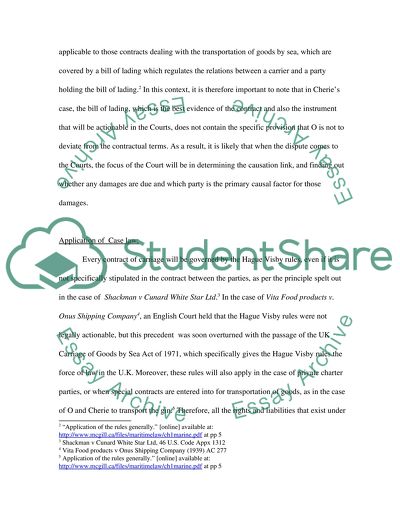Cite this document
(“CARRIAGES OF GOODS BY SEA. (LAW DEGREE) Essay Example | Topics and Well Written Essays - 2500 words”, n.d.)
CARRIAGES OF GOODS BY SEA. (LAW DEGREE) Essay Example | Topics and Well Written Essays - 2500 words. Retrieved from https://studentshare.org/miscellaneous/1540756-carriages-of-goods-by-sea-law-degree
CARRIAGES OF GOODS BY SEA. (LAW DEGREE) Essay Example | Topics and Well Written Essays - 2500 words. Retrieved from https://studentshare.org/miscellaneous/1540756-carriages-of-goods-by-sea-law-degree
(CARRIAGES OF GOODS BY SEA. (LAW DEGREE) Essay Example | Topics and Well Written Essays - 2500 Words)
CARRIAGES OF GOODS BY SEA. (LAW DEGREE) Essay Example | Topics and Well Written Essays - 2500 Words. https://studentshare.org/miscellaneous/1540756-carriages-of-goods-by-sea-law-degree.
CARRIAGES OF GOODS BY SEA. (LAW DEGREE) Essay Example | Topics and Well Written Essays - 2500 Words. https://studentshare.org/miscellaneous/1540756-carriages-of-goods-by-sea-law-degree.
“CARRIAGES OF GOODS BY SEA. (LAW DEGREE) Essay Example | Topics and Well Written Essays - 2500 Words”, n.d. https://studentshare.org/miscellaneous/1540756-carriages-of-goods-by-sea-law-degree.


